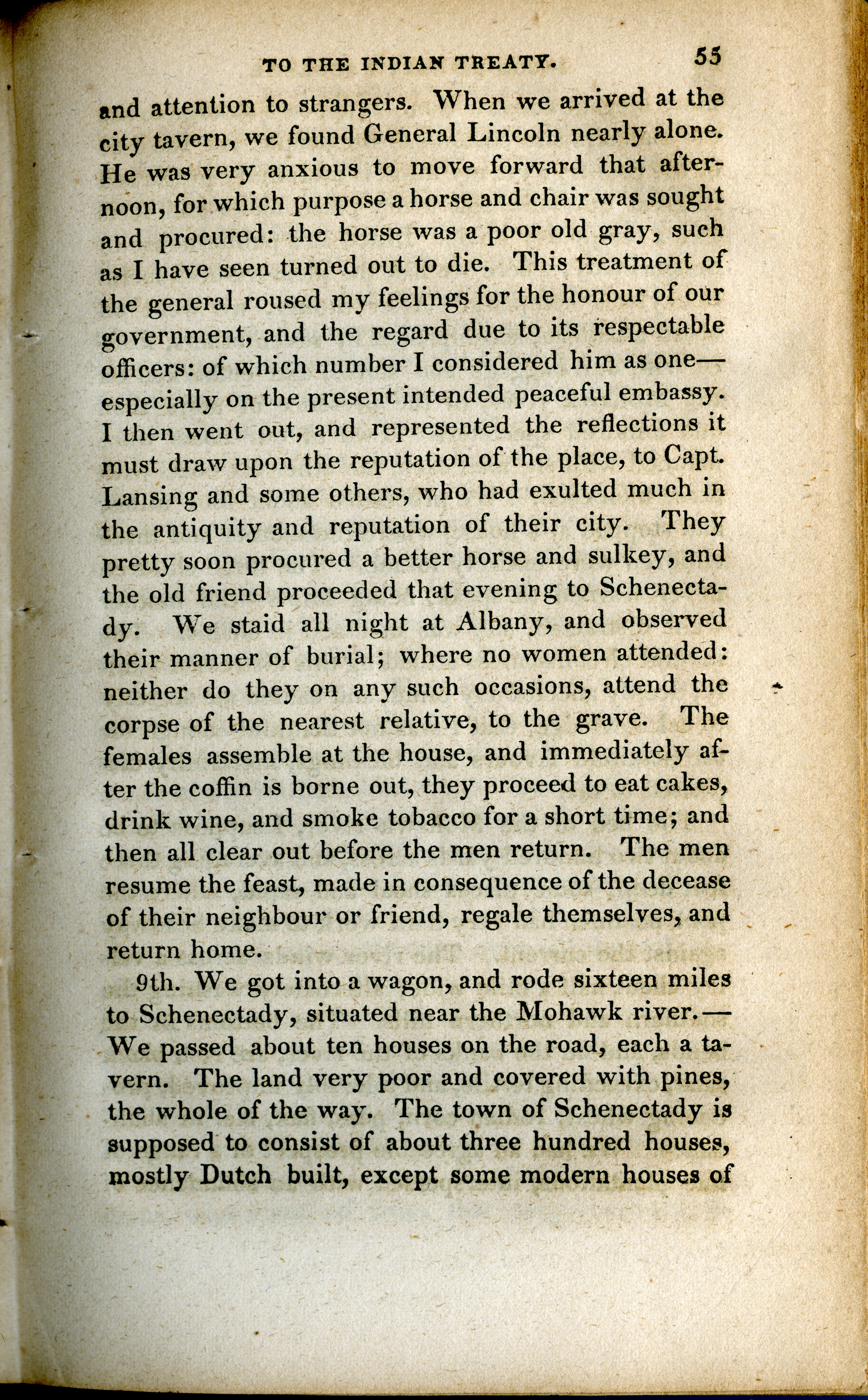and attention to
strangers. When we arrived at the
city tavern, we found general Lincoln nearly alone.
He was very
anxious to move forward that after-
noon, for which purpose a horse and
chair was sought
and procured: the horse was a poor old gray, such
as
I have seen turned out to die. This treatment of
the general roused my
feelings for the honour of our
government, and the regard due to its
respectable
officers: of which number I considered him as one —
especially on the present intended peaceful embassy.
I then went out, and
represented the reflections it
must draw upon the reputation of the place,
to Capt.
Lansing and some others, who had
exulted much in
the antiquity and reputation of their city. They
pretty soon procured a better horse and sulkey, and
the old friend
proceeded that evening to Schenecta-
dy.
We staid all night at Albany, and
observed
their manner of burial; where no women attended:
neither do
they on any such occasions, attend the
corpse of the nearest relative to
the grave. The
females assemble at the house, and immediately af-
ter
the coffin is borne out, they proceed to eat cakes,
drink wine, and smoke
tobacco for a short time; and
then all clear out before the men return. The
men
resume the feast, made in consequence of the decease
of their
neighbor or friend, regale themselves, and
return home.
We got into a wagon, and rode sixteen
miles
to Schenectady, situated near the
Mohawk river. —
We passed about ten
houses on the road, each a ta-
vern. The land very poor and covered with
pines,
the whole of the way. The town of Schenectady is
supposed to consist of about three hundred
houses,
mostly Dutch built, except some modern houses of

